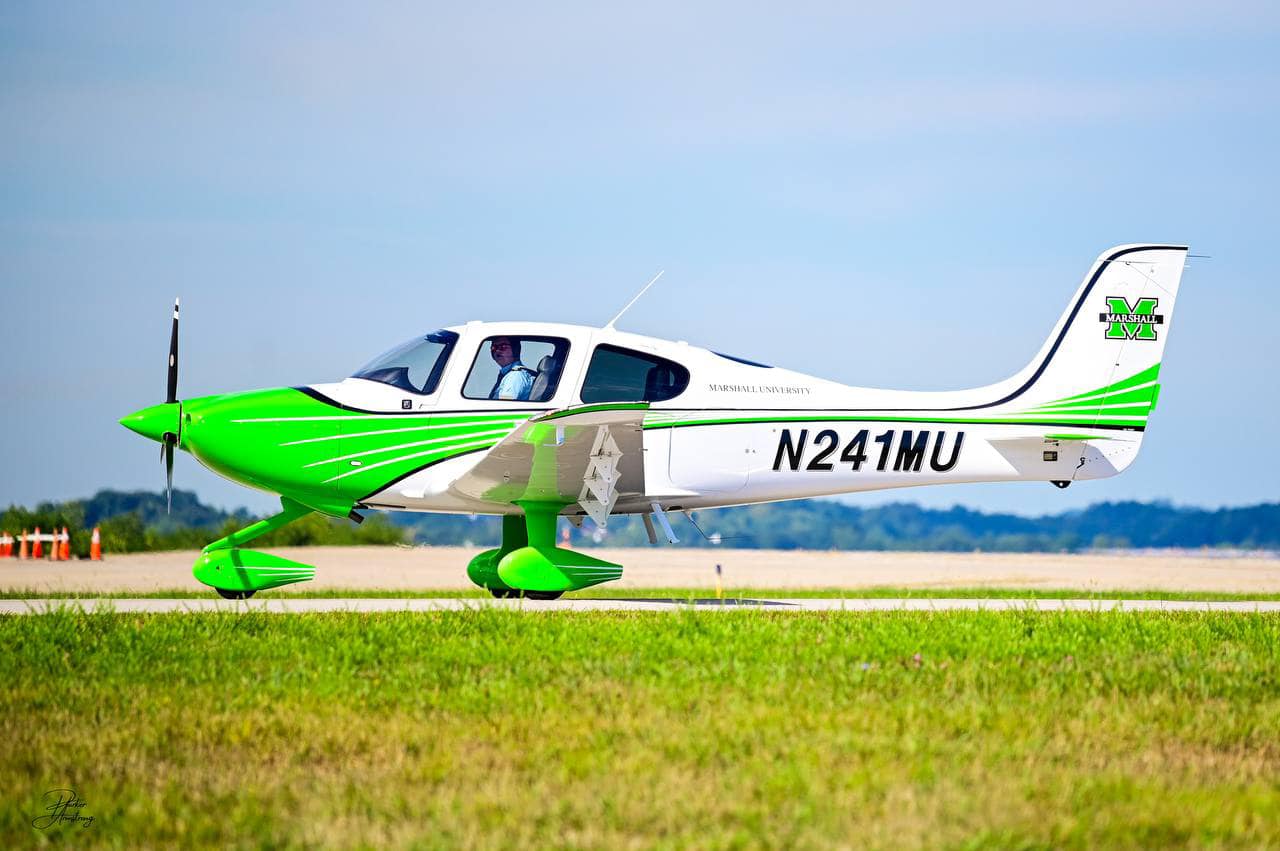Marshall University has expanded its degree program for professional pilots into the Eastern Panhandle. This fall, students can pair online classes with in-person training at an airport in Martinsburg.
Eastern Panhandle Reporter Jack Walker spoke with Nancy Ritter, director of Marshall’s Bill Noe Flight School, about the program expansion and efforts to recruit new pilots more broadly.
This interview has been edited for length and clarity.
Walker: What led Marshall University to expand its academic program for pilots into Martinsburg?
Ritter: Marshall University entered the aviation space for three reasons. The first is to produce the highest quality aviation professionals in the industry. The second is to grow and develop Marshall University’s educational mission. And the third is to provide line-of-sight opportunities to the citizens of West Virginia in the field of aviation.
The way that the university is approaching that is that every part of this state has an opportunity to have either its young individuals or career-changing individuals enter aviation. For many families and many individuals, they don’t really understand the opportunities that are available to them.
So the more places that we can expand to and provide training about the aviation industry and the different careers open to people and the opportunities that exist right now — because of a pilot shortage and a mechanic shortage and every other kind of personnel shortage — the closer we can be to those communities, and the easier it is to serve them.
Walker: What are some of the careers that people in the aviation industry can pursue?
Ritter: So the Marshall degree that we’re starting first in Martinsburg is the professional pilot program. So the students that are starting this fall in Martinsburg are doing a four-year degree that includes all their licensing to be a professional pilot inside of that degree. It’s the one that Marshall started with, and it’s probably the need we as citizens know about. Everybody’s been at an airport now and had our flight delayed because there’s not enough crew, so it’s really on the forefront of everybody’s list priorities. We started our expansion in Martinsburg with professional pilot, because we’ve gotten so many requests for information about that program from the Martinsburg area. So that’s the easiest one to talk about.
However, Marshall has several different career opportunities in Marshall aviation. So there’s an opportunity to become an airframe and powerplant mechanic or an aircraft maintenance technician. We do that currently in Huntington, and eventually will lead to Martinsburg this fall. We start UAS, our unmanned aircraft training here, which will also be offered in Martinsburg. Coming very quickly following that is flight attendant and dispatcher, which are certification programs.
Walker: You mentioned that there’s been a shortage of pilots. Can you speak to how that impacts rural and smaller airports, and what role it plays in pilot recruitment efforts like these?
Ritter: It’s really numbers. I don’t think these shortages are focused on rural areas. I think that the areas with the least population suffer the most because they don’t have a lot of flights going in and out. I think it’s more dramatic. If you have a pilot shortage in Atlanta, there’s so many flights that go in and out of Atlanta that it’s less perceivable to the individual passenger. When you have one flight going in and out of an area, and that [has] a shortage of pilots, obviously it stops the transportation in its tracks, so it becomes a much more magnified problem.
A lot of the West Virginia airports that only have one or two flights daily, if there is an overall pilot shortage, they may feel more of that impact than say, if you were very close to Atlanta’s airport, where you had thousands of flights to choose from every day if one flight was canceled. So I think that’s perhaps the reason that smaller-population areas feel the shortage the most.
Walker: What’s the response from the community been like so far? Has there been a lot of new interest in pursuing this program among residents of Martinsburg and the general area?
Ritter: It’s been really great reception from the area. A lot of community involvement, a lot of excitement from different military units in the vicinity, and a lot of outreach from school districts within the counties that border Martinsburg and really the whole Panhandle area. So we were surprised at how warm and welcoming [they were]. We always knew it was a great airport with a lot of positive supporters about growing the aviation industry, and Nick Deal and his team have just done a wonderful job in encouraging businesses and education to come into that airport. But not only did the airport and their team welcome us, but the community has come out in droves to welcome us. So it’s very exciting to be a part of that reception when everybody is so positive about the addition of higher education and flight training into that area. So we feel really lucky with it.
For more information on Marshall University’s professional pilot academic program in Martinsburg, visit the university website.
